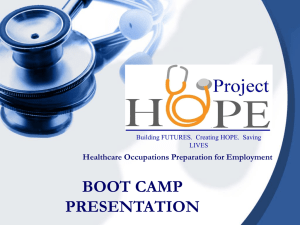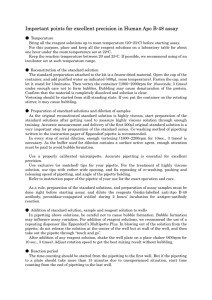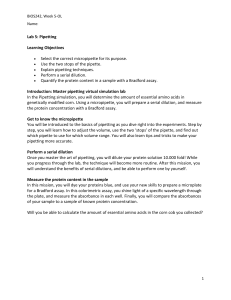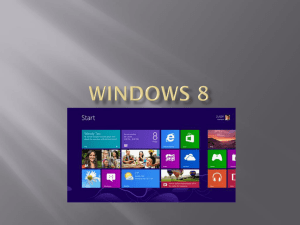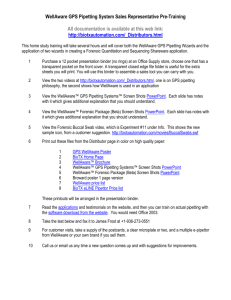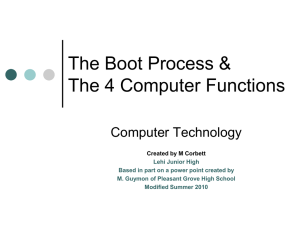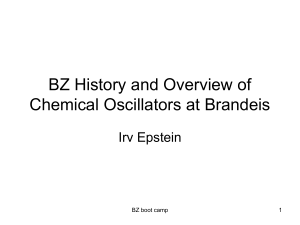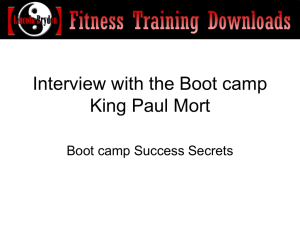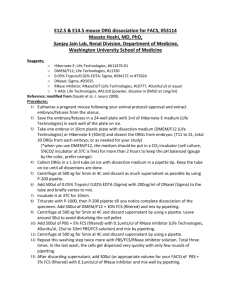BLAST (Basic Laboratory Skills Testing)
advertisement
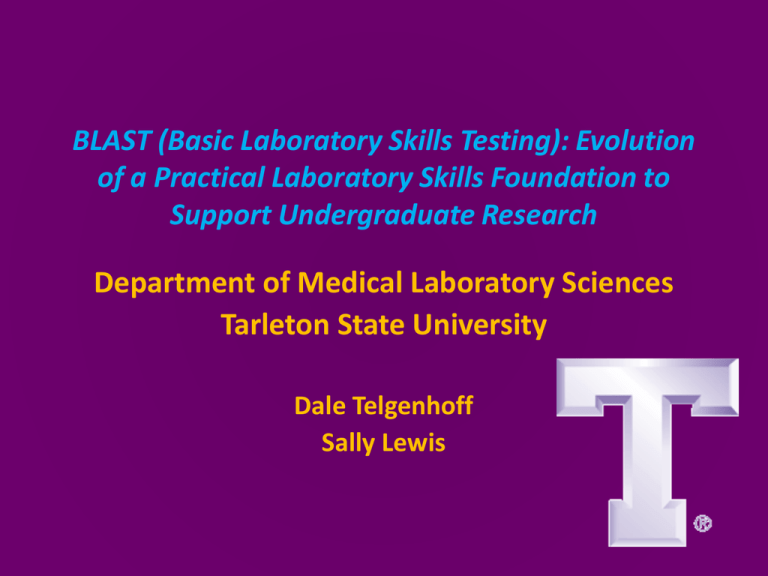
BLAST (Basic Laboratory Skills Testing): Evolution of a Practical Laboratory Skills Foundation to Support Undergraduate Research Department of Medical Laboratory Sciences Tarleton State University Dale Telgenhoff Sally Lewis Rational for Development of BLAST • • • • Mission of MLS History of research in MLS Past UG research experiences Goals – Prepare UG for research prior to experience – Preparation for graduate school Creation Phase • • • • Identify medium for project Define outcomes Identify Faculty/Project Coordinator Communicate desired project goals and outcomes to Project Coordinator and MLS faculty • Departmental support You want me to do what?????? Defining Outcomes • Students • Faculty Defining Outcomes Calming the Beast Initiation Phase: Boot Camp I Identification of Basic Skills Separation of “Basic” and “Advanced” Review of Skills Previously Learned Assessment of Mastery What is a “Basic Skill”? Skill Selection Basic Skills Advanced Skills • • • • • • • • • • • • • • • • • • • • • Hand washing Disinfecting countertops Cleaning up biohazard spill Removal of contaminated gloves, clothing Selection of proper waste receptacle Microscopy Koehler Illumination Pipetting Monitoring temperatures Dilutions Lab Math Gravimetric analysis Centrifugation Phlebotomy Specimen collection Cell counting Instrument operation pH adjustment Spectrophotometry Osmometry Molecular techniques Skill Categories Biosafety • Handwashing • PPE • Biohazard clean-up • Waste management Pipetting Microscopy • Components • Optimal imaging • Koehler • Modifications Dilutions and Solutions • Glassware selection • Concentration mathematics • Gravimetric analysis • Centrifugation • • • • Procedure Selection Micropipettes Troubleshooting Instructional Phase: Boot Camp I Format • Four 2-hour sessions • Hands-on laboratory instruction • Time dedicated for practice • Facilities available for additional practice Instructional Session Example • Handwashing – GloGerm Handwash • Spill clean-up • Segregation of waste Assessment: Boot Camp I Assessment Stations • One-on-one performance of skill in front of faculty • Four stations, rotation of students • Pass/fail system – three attempts Remediation • Six fails – all in pipetting skills • One-on-one instruction/ troubleshooting • Improved technique, passed skills test Here we Go Again: Boot Camp II Increased emphasis on pipetting skills Incorporated BLAST into grade for Introductory Course Reviewed feedback from faculty, students Undergraduate Research • Basic lab skills required for advanced molecular techniques • Overall improvement of skills – little need for remedial teaching • More time spent on research development and implementation Clinical Outreach • Discuss basic lab skills with clinical instructors • Review of techniques currently used • Skills improved – still need emphasis on pipetting skills Information provided by Virginia Reyes, M.Ed., MT(ASCP)SBB Boot Camps III +: What we have Learned…. Some skills replaced, substituted Continued strong emphasis on pipetting skills, assessment Graded component of Introductory course Fear – spread by word of mouth – increased practice! Questions?

